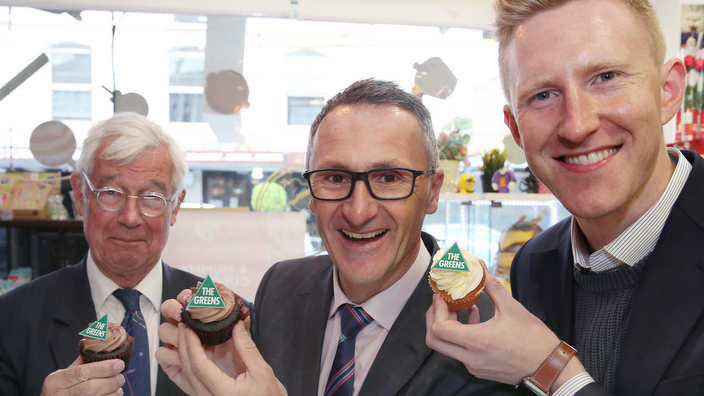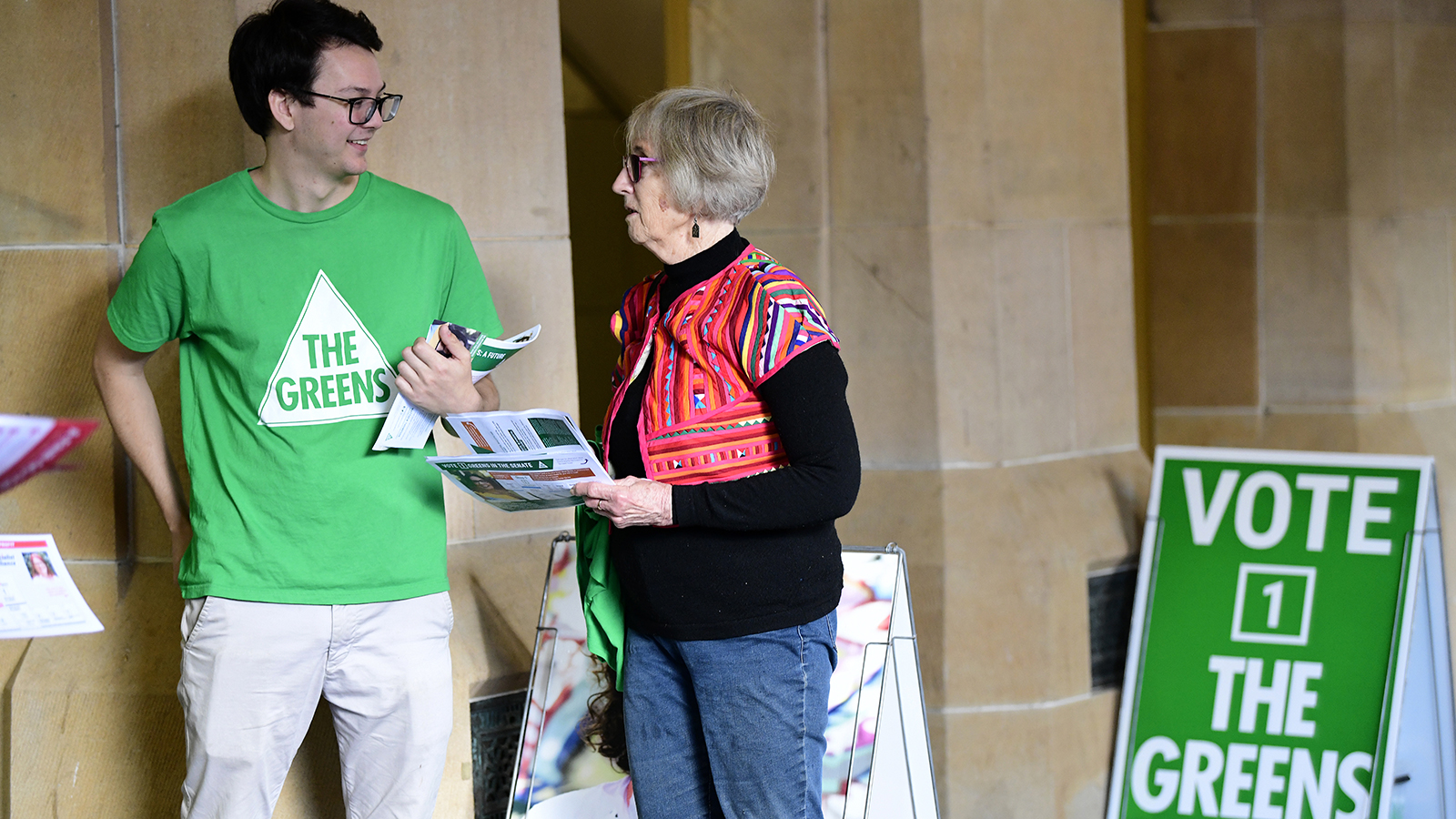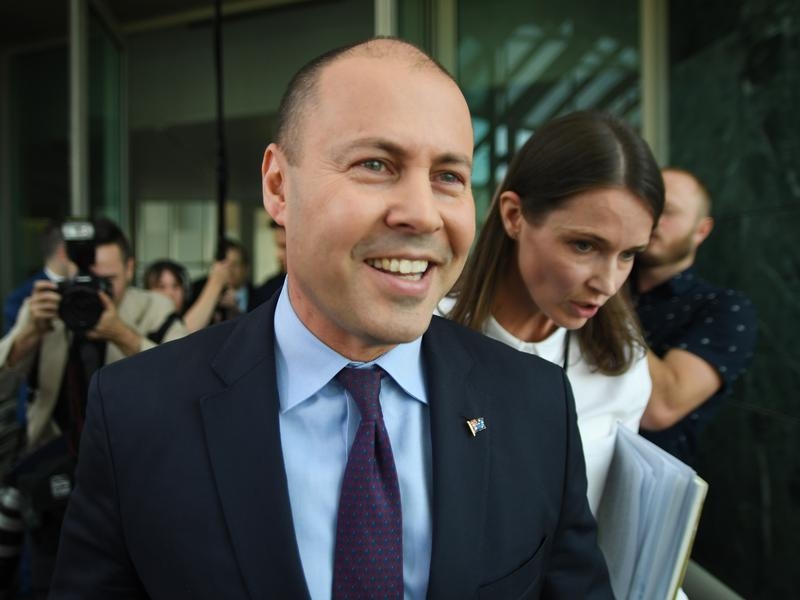While right-of-centre parties - including One Nation, the United Australia Party, and the Liberal Democrats - attract votes here and there in Australia, the Greens have managed to consolidate support left-of-centre.
Ordinarily, that would place the Greens in a "luxurious position" come election day, says Dr Zareh Ghazarian, a political scientist at Monash University.
But he cautions that is unlikely to be the case on Saturday when the country goes to the polls.
"Where minor parties do really well in Australia is where there is not really much difference between the major parties. [But] what we have seen at this election is a polarisation of the major parties in their policy platforms, personnel and leadership approaches," he said.  "This is also shaping up to be an election where we will expect to see a government change."
"This is also shaping up to be an election where we will expect to see a government change."

The Greens are hoping Saturday's election will be cause for celebration in three Melbourne seats. Source: AAP
"Traditionally minor parties don't perform as strongly in elections where there is a change in government."
What are the Greens' policies?
The Greens have pledged to tackle climate change by phasing out coal and building a renewable energy economy; to tackle economic inequality; build half a million affordable homes; raise Newstart, and bring dental care into Medicare so it is available for everyone.
According to Greens Leader Richard Di Natale, it is the only party with "a detailed, credible plan" to move away from coal, oil and gas to renewable energy. "If you do not have a plan to transition away from coal you do not have a climate plan," he said.
"If you do not have a plan to transition away from coal you do not have a climate plan," he said.

Source: AAP
"And neither [Labor nor the Liberals] wants to stop new coal mines."
"Indeed the Labor party wants to expand the gas industry, they want to frack 1,200 gas wells in the Northern Territory."
In this term of parliament, Senator Di Natale says the Greens have delivered on key party policies including banking and disability royal commissions, marriage equality and a national anti-corruption watchdog.
Opinion polls and past performance
At a national level, opinon polls have shown the Greens hovering around the nine per cent primary vote mark since October.
And they have had some problems at the state level, with the loss of four out of five Upper House candidates in Victoria's election back in November.
But Senator Di Natale remains optimistic.
"Some polls have the Greens up a bit, some polls have the Greens steady," he said.
"We will know in a few days’ time what the real number looks like."
"But what we are hearing on the ground is a hugely positive response from the community to the Greens."
The Melbourne hotspots
At the federal election, the party is focusing its efforts on the two inner-city Melbourne seats of Kooyong and Higgins.
In Kooyong the prominent human rights lawyer Julian Burnside QC is standing for the Greens against Treasurer Josh Frydenberg.
"If you are worried about climate change - and you ought to be - and people in Kooyong are, then voting for the Greens is the only sensible thing to do," Mr Burnside has said. He only threw his hat in the ring in March.
He only threw his hat in the ring in March.

"All the Greens policies right across the board all ultimately rest on concern about human rights, and that's my big thing," he said.
"Both major parties still have appalling policies on that."
The pair are "neck-and-neck" according to Mr Burnside, but that is not everyone's assessment.
"I am not so sure they will have the momentum coming into this election to win those two seats," said Dr Zareh Ghazarian.
"Their campaign has not been as strong as they would perhaps have liked and those are traditional Liberal voting seats."
"You would expect the long-standing Liberal voters to maintain that support, to support the Treasurer who is also being touted as a potential future Liberal party leader." The seat of Higgins is vacant following the retirement of government minister Kelly O'Dwyer.
The seat of Higgins is vacant following the retirement of government minister Kelly O'Dwyer.

Josh Frydenberg (AAP) Source: AAP
"It is possible for the Greens to exploit that," said Dr Zareh Ghazarian.
"These candidates do not have the luxury of incumbency and [the Greens] may give that the closest run they can and be more confident of that seat than Kooyong."
Senator Di Natale is remaining buoyant.
"You only need to look at the amount of money being spent by the Liberal Party on advertising in two seats they have traditionally ignored to know that this is going to be a tight contest between the Green and Liberals," he said.
"People in Higgins and Kooyong have never been in a more powerful position to send a message to the Liberal Party that their inaction on climate change is no longer acceptable."
Mr Frydenberg says there is no seat that is safe across the country.
"No one should take their seat for granted or be complacent - and certainly I have not," he said.
"I continue to work hard to win the support of the people of Kooyong and they know I am delivering for our local community."
Swinging the Senate
Senator Di Natale believes no one party will control the Senate after the election.
"Australia very rarely delivers a majority to the party of government in the Senate," he said.
"Whoever is the next prime minister will need to negotiate with the Senate."
The Greens are hoping for a Shorten-Labor government and have already said they want to negotiate with it.
"The Greens have a track record of holding the major parties to account, keeping them honest and pushing them hard on climate change", he said.
"That's what people expect from us in the Senate."
"That is what we will deliver after the election if we are successful."


